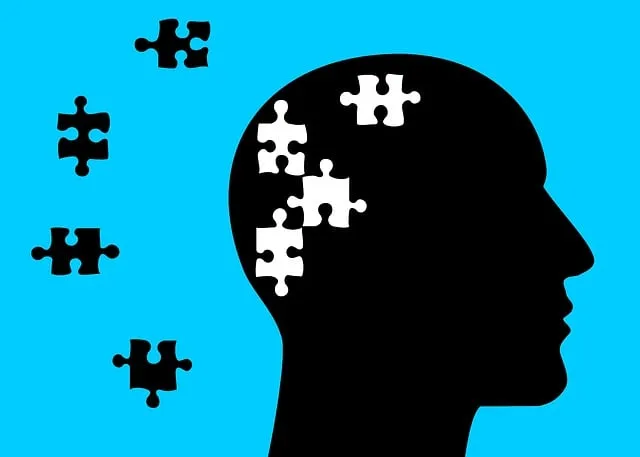Kaiser Permanente Louisville is enhancing mental health diagnosis accuracy through strategic investments in cutting-edge tools and specialized training, including advanced psychological assessments and digital screening tools. They offer emotional intelligence workshops for professionals and promote self-care routines as part of their Risk Management Planning to boost resilience. By addressing cultural biases and implementing initiatives that focus on empathy, compassion, and self-esteem improvement, Kaiser Permanente Louisville aims to create a supportive environment for both patients and healthcare providers, ultimately elevating the accuracy and effectiveness of mental illness diagnosis in the Louisville community.
Mental illness diagnosis accuracy is a critical aspect of patient care, and ongoing efforts are needed to enhance reliability. This article explores innovative strategies implemented by Kaiser Permanente Louisville to improve diagnostic practices among mental health professionals. We delve into their comprehensive approach, encompassing advanced training programs tailored to the local population, data-driven techniques like leveraging electronic health records (EHRs) and artificial intelligence (AI), as well as community outreach initiatives aimed at early intervention and improved mental health literacy.
- Enhancing Diagnostic Tools and Training for Mental Health Professionals at Kaiser Permanente Louisville
- – Discussing the current challenges in mental illness diagnosis accuracy
- – Introduction of advanced training programs and improved assessment tools tailored to Kaiser Permanente Louisville's patient population
Enhancing Diagnostic Tools and Training for Mental Health Professionals at Kaiser Permanente Louisville

At Kaiser Permanente Louisville, efforts to enhance mental health diagnosis accuracy involve significant investments in both tools and training. The organization prioritizes upgrading diagnostic tools to incorporate the latest research and technologies, ensuring professionals have access to the most effective methods for assessment. This includes integrating advanced psychological assessments and digital screening tools that can detect subtle signs of mental illness, improving overall precision.
Alongside these technological advancements, Kaiser Permanente Louisville emphasizes comprehensive training programs for its mental health professionals. Workshops focus on developing emotional intelligence, a crucial skill for accurately interpreting patient behavior and nuanced expressions related to mental health conditions. Moreover, the organization promotes self-care routine development among its staff as an essential component of Risk Management Planning for Mental Health Professionals. By fostering a culture that values well-being, Kaiser Permanente Louisville aims to enhance not only diagnostic accuracy but also professional resilience.
– Discussing the current challenges in mental illness diagnosis accuracy

Mental illness diagnosis accuracy has been a subject of growing concern within the healthcare industry, particularly in areas like Louisville, where organizations such as Kaiser Permanente mental health services play a vital role. Despite advancements in understanding and treatment options, several challenges hinder accurate diagnoses. One significant hurdle is the complex nature of mental health conditions, which often overlap or co-occur, making it difficult for professionals to pinpoint specific disorders. This complexity requires a nuanced approach that considers individual experiences and symptoms holistically.
Additionally, the current diagnostic processes may overlook cultural aspects, as many tools and assessments are developed in predominantly Western contexts, potentially leading to misdiagnoses or missed opportunities for personalized care. Encouraging self-awareness exercises, crisis intervention guidance, and emotional regulation strategies can empower individuals to actively participate in their mental health management, complementing traditional assessment methods. Such efforts aim to bridge the gap between patient experiences and clinical diagnoses, ultimately improving treatment outcomes.
– Introduction of advanced training programs and improved assessment tools tailored to Kaiser Permanente Louisville's patient population

Kaiser Permanente Louisville has recognized the need to enhance mental health diagnosis accuracy and is taking proactive steps in this direction. One significant initiative involves introducing advanced training programs designed to equip healthcare professionals with specialized knowledge tailored to the unique needs of their patient population. These programs focus on improving assessment techniques, fostering empathy, and cultivating compassion among caregivers. By enhancing these skills, medical staff can better understand and interpret complex mental health presentations, leading to more accurate diagnoses.
Furthermore, the integration of Empathy Building Strategies and Compassion Cultivation Practices into the training curriculum aims to create a supportive environment for both patients and healthcare providers. Encouraging self-esteem improvement initiatives complements this approach by empowering individuals seeking mental health services. Through these comprehensive efforts, Kaiser Permanente Louisville strives to elevate the accuracy and effectiveness of mental illness diagnosis, ultimately enhancing patient outcomes and care experiences in their community.
Efforts to enhance mental illness diagnosis accuracy, such as those implemented at Kaiser Permanente Louisville through advanced training programs and improved assessment tools, mark a significant step forward. By tailoring these initiatives to the unique patient population of Kaiser Permanente Louisville, there is potential for more precise and effective care. These strategies not only benefit individual patients but also contribute to a more robust mental health landscape in Louisville, ultimately improving outcomes for those facing mental health challenges.






